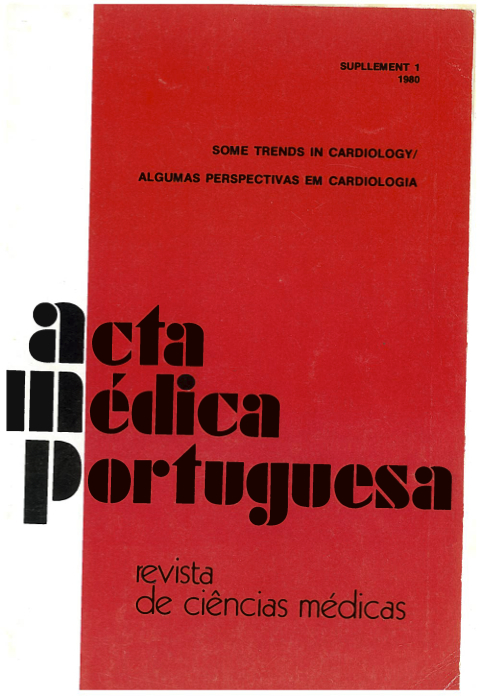Procainamide, oxprenolol and amiodarone as antidysrhythmic drugs in myocardial infarction.
DOI:
https://doi.org/10.20344/amp.4294Resumo
Using Holter recordings and based on the principle that most of the survivors of acute myocardial infarction who are going to die suddenly after hospital discharge are those who present ventricular premature beats (VPB), the authors have studied the effect of three different antidysrhythmic drugs - procainamide (PA), oxprenolol (OX) and amiodarones. (AMIOD) - in late phase of acute myocardial infarction. All the trials have been controlled Procainamide (47 patients studied), in comparison with placebo (PL), revealed to be effective (a) in supressing and diminishing VPB/hour (p=0.0425), and (b) in maintaining patients with no VPB (PA 89.6% - PL 64.7%). Oxprenolol (27 patients studied), in comparison with placebo, revealed to be effective (a) in maintaining patients with no VPB (p=0.0525), and (b) in avoiding the increase of VPB/hour (p=0.0576). Finally amiodarone (37 patients studied), in comparison with placebo, was effective (a) in maintaining patients with no VPB (AMIOD 50% - PL 39%), (b) in diminishing VPB/hour (AMIOD 29% - PL 9%), and (c) in avoiding the increase of VPB/hour (AMIOD 79% - PL 48%). The authors finish their paper emphasizing that no antidysrhythmic drug should be introduced in clinical practice before being submitted to controlled studies with Holter electrocardiography.
Downloads
Downloads
Como Citar
Edição
Secção
Licença
Todos os artigos publicados na AMP são de acesso aberto e cumprem os requisitos das agências de financiamento ou instituições académicas. Relativamente à utilização por terceiros a AMP rege-se pelos termos da licença Creative Commons ‘Atribuição – Uso Não-Comercial – (CC-BY-NC)’.
É da responsabilidade do autor obter permissão para reproduzir figuras, tabelas, etc., de outras publicações. Após a aceitação de um artigo, os autores serão convidados a preencher uma “Declaração de Responsabilidade Autoral e Partilha de Direitos de Autor “(http://www.actamedicaportuguesa.com/info/AMP-NormasPublicacao.pdf) e a “Declaração de Potenciais Conflitos de Interesse” (http://www.icmje.org/conflicts-of-interest) do ICMJE. Será enviado um e-mail ao autor correspondente, confirmando a receção do manuscrito.
Após a publicação, os autores ficam autorizados a disponibilizar os seus artigos em repositórios das suas instituições de origem, desde que mencionem sempre onde foram publicados e de acordo com a licença Creative Commons









